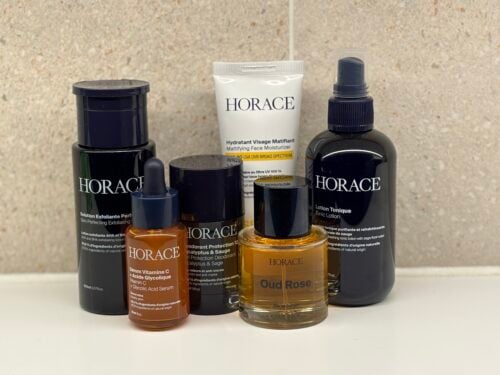Horace Skincare Review: Why Horace Is Dominating The Modern Man’s Bathroom Cabinet
Feb 21, 2026Does Eating Pineapple Really Increase Testosterone Levels?
- Jan 9, 2024
- 0 Comments
2121

Pineapple, known for its sweet, tropical flavour and rich nutrient profile, is often touted for various health benefits. But does it have a significant impact on testosterone, the key hormone responsible for muscle growth, bone density, and testosterone levels?
In this blog post, we’ll dive into the science behind this claim, examining the nutritional components of pineapple and how they may influence testosterone production. Join us as we unravel the truth and discover whether pineapple is indeed a secret weapon in boosting hormonal health.
The Science Behind Pineapple and Testosterone
Delving into the intriguing connection between pineapple consumption and testosterone levels, let’s explore the nutritional profile of pineapple and its potential role in hormonal health.
How Pineapple May Impact Testosterone Levels
There is a popular belief that consuming pineapple or pineapple juice can naturally increase testosterone levels in the body. This claim is often attributed to the presence of certain nutrients and compounds in pineapple that are thought to have a positive impact on testosterone production and overall hormonal balance.
However, for individuals experiencing clinically low testosterone levels, dietary changes alone may not be sufficient. This is where Testosterone Replacement Therapy (TRT) comes into play. Best TRT, an online TRT platform, offers a comprehensive approach to managing low testosterone. With personalized treatment plans, expert medical consultations, and convenient online access, Best TRT provides a reliable solution for those seeking to address hormonal imbalances effectively.
Research Studies on Pineapple and Testosterone
While there is limited scientific research specifically focusing on the direct relationship between pineapple consumption and testosterone levels, some studies have explored the potential health benefits of pineapple and its impact on various aspects of wellbeing. However, more research is needed to establish a clear link between pineapple and testosterone levels.
Nutrients in Pineapple That May Affect Testosterone Levels
Pineapple is a rich source of several key nutrients that are essential for overall health, including vitamin C, manganese, and bromelain. These nutrients play important roles in supporting various bodily functions, including antioxidant activity, immune function, and digestion. While there is no direct evidence linking these nutrients to testosterone production, they are important for overall wellbeing and may indirectly support hormonal balance.
Potential Benefits of Adding Pineapple to Your Diet
Discover the various ways in which incorporating pineapple into your diet can contribute to your overall health, from its antioxidant properties to its unique enzymatic benefits.
Other Health Benefits of Pineapple
In addition to its potential impact on testosterone levels, pineapple offers a range of other health benefits. It is a good source of antioxidants, which can help fight free radicals in the body and reduce the risk of chronic diseases. Pineapple also contains bromelain, an enzyme with anti-inflammatory properties that may support joint health and digestion.
How Pineapple Can Support Overall Wellbeing
Incorporating pineapple into your diet can contribute to overall wellbeing by providing essential nutrients and supporting various bodily functions. The vitamins, minerals, and antioxidants in pineapple can help maintain a healthy immune system, promote healthy digestion, and support cardiovascular health.
The Role of Pineapple in a Balanced Diet
Pineapple can be a valuable addition to a balanced diet, providing natural sweetness and a range of nutrients. When consumed as part of a varied and balanced diet, pineapple can contribute to meeting the body’s adequate daily intake of essential nutrients.
Tips for Getting the Most Out of Pineapple
To fully enjoy the delicious taste and nutritional benefits of pineapple, it’s important to know how to select and store it properly.
Selecting and Storing Fresh Pineapple
When choosing fresh pineapple, look for fruits that are plump, with vibrant green leaves and a sweet aroma. Store whole pineapples at room temperature until ripe, and then refrigerate them for up to 2-4 days. Cut pineapple should be stored in an airtight container in the refrigerator and consumed within 3-4 days.
Incorporating Pineapple into Your Meals and Snacks
Pineapple can be enjoyed in a variety of ways, including fresh, grilled, or blended into smoothies. It can also be added to salads, salsas, and stir-fries for a burst of tropical flavor. Including pineapple in your meals and snacks is a delicious way to increase your intake of essential nutrients.
Pairing Pineapple with Other Testosterone-Boosting Foods
To enhance the potential benefits of pineapple for testosterone support, consider pairing it with other foods that are known to naturally increase testosterone levels. Foods such as bananas, celery, and coconut oil are thought to have testosterone-boosting properties and can be combined with pineapple for a well-rounded approach to hormonal health.
Incorporating Pineapple into Your Diet for Optimal Testosterone Levels
Discover the delicious ways to use pineapple in your diet that not only tantalize your taste buds but also help in maintaining healthy testosterone levels.
Pineapple Recipes for Testosterone Support
Incorporating pineapple into testosterone-boosting recipes can be a fun and flavorful way to support hormonal health. Try adding pineapple to a tropical smoothie with banana and coconut milk, or grill it as a side dish to complement a hormone-balancing meal.
Creating Balanced Meals with Pineapple
When planning your meals, consider including pineapple alongside a variety of nutrient-dense foods to create balanced and satisfying dishes. Pairing pineapple with lean protein, healthy fats, and fibre-rich vegetables can help support overall well-being and hormonal balance.
Conclusion
While pineapple can be a delicious and nutritious addition to your diet, it is important to consume it in moderation and be mindful of individual health needs. By incorporating pineapple in appropriate portion sizes and balancing it with other nutrient-dense foods, you can enjoy its potential benefits for testosterone support while promoting overall health and wellbeing.
Publisher: Source link







